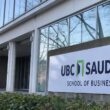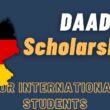The Erasmus Mundus Joint Master’s Degree program represents one of Europe’s most valuable scholarship opportunities for international students. This initiative, funded by the European Union, offers fully funded master’s degrees that involve study in at least two different European countries. For students seeking high-quality graduate education combined with international experience, these scholarships provide an exceptional pathway.
This comprehensive guide examines the Erasmus Mundus program structure, available opportunities, application procedures, and practical considerations for prospective applicants. Understanding how this program works helps you evaluate whether it aligns with your academic goals and how to prepare competitive applications.
Understanding the Erasmus Mundus Framework
The European Union established the Erasmus Mundus program to promote European higher education worldwide and enhance cooperation between European and non-European institutions. Unlike many scholarship programs that fund study at a single institution, Erasmus Mundus requires mobility between multiple European universities.
Each Erasmus Mundus Joint Master’s Degree (EMJMD) involves a consortium of universities from different European countries. When you enroll in an EMJMD program, you study at a minimum of two universities in two different countries during your degree. Some programs involve three or even four universities across different nations.
This mobility requirement serves multiple purposes. Students gain exposure to different academic traditions, teaching methods, and research approaches. You build international networks spanning multiple countries and institutions. The experience of living and studying in different European contexts develops adaptability and cross-cultural competence valuable in increasingly globalized professional environments.
Programs typically last two years, though a few extend to 90 or 120 ECTS credits depending on the field and specific curriculum design. Upon completion, graduates receive either a joint degree (a single diploma issued jointly by all participating universities) or multiple degrees (separate diplomas from each institution where you studied).
Scholarship Benefits
The scholarship package provided through Erasmus Mundus offers comprehensive financial coverage designed to make the program accessible regardless of economic background. Understanding exactly what receives funding helps prospective applicants evaluate the true value of these opportunities.
Full Tuition Coverage
The scholarship covers all tuition fees for the entire duration of your master’s program. European master’s degrees typically cost between €3,000 and €20,000 annually for international students, depending on the country and institution. The scholarship eliminates this expense completely.
Monthly Living Stipend
Scholars receive a monthly stipend to cover living expenses. The amount is currently €1,400 per month, totaling €33,600 over a standard two-year program. This stipend is designed to cover accommodation, food, local transportation, and basic living costs in European cities.
The adequacy of this stipend varies considerably by location. In cities like Lisbon, Prague, or Bologna, €1,400 monthly allows for comfortable student living. In expensive cities like Copenhagen, Stockholm, or Amsterdam, you might need to budget more carefully or supplement with part-time work where permitted.
Travel Allowance
The program provides funds for travel between your home country and Europe at the beginning and end of your studies. The amount varies based on the distance traveled. Students from more distant countries receive larger travel allowances reflecting higher actual costs.
Installation Costs
Upon arrival in Europe, scholars receive a one-time payment to help with initial settlement expenses. This covers things like bedding, kitchen supplies, initial groceries, and other items needed when establishing yourself in a new country.
Insurance Coverage
The scholarship includes health insurance coverage throughout your study period. This proves particularly valuable given that European healthcare systems vary by country, and navigating insurance as an international student can otherwise be complex and expensive.
Program Categories and Fields of Study
Erasmus Mundus scholarships are available across diverse academic fields. The European Commission approves specific master’s programs as EMJMDs, and each approved program then selects its own scholars from its applicant pool.
Programs span the humanities, social sciences, natural sciences, engineering, and professional fields. Some examples help illustrate the diversity:
Sciences and Engineering: Environmental Sciences, Coastal Engineering, Marine Biology, Renewable Energy, Chemical Innovation, Computer Vision and Robotics, Nanoscience, Geospatial Technologies.
Social Sciences: Development Economics, Public Policy, Urban Studies, Migration Studies, Cultural Heritage, International Relations, Educational Research.
Humanities and Arts: Literary Translation, Film Studies, European Cultures, Journalism, Music, Theatre Studies, History, and Cultural Heritage.
Professional Fields: Public Health, Sustainable Development, Agricultural Management, Architectural Conservation, Food Science, and Sport Management.
New programs receive approval periodically, while some older programs conclude, so the specific offerings evolve over time. The official Erasmus Mundus catalogue maintained by the European Education and Culture Executive Agency (EACEA) lists all currently available programs with detailed information about each.
Eligibility Requirements and Criteria
Erasmus Mundus programs welcome applicants from around the world, though specific eligibility criteria vary by program. Some general requirements apply across most EMJMDs.
Academic Qualification
You must hold a bachelor’s degree or equivalent from a recognized institution. Different programs require degrees in specific fields or related disciplines. For instance, an EMJMD in Sustainable Energy Engineering typically requires an undergraduate background in engineering or physical sciences, while a program in International Relations might accept degrees in political science, history, economics, or related fields.
Most programs specify minimum grade requirements, often expressed as equivalent to good standing or upper second-class honors in British system terms. Exact thresholds vary by program and how they interpret academic credentials from different educational systems.
Language Proficiency
Since programs are taught in English, French, Spanish, or other European languages, depending on the specific EMJMD, you need to demonstrate proficiency in the language of instruction. English-taught programs (the majority) typically require IELTS scores of 6.5 or higher, or TOEFL scores above 90, though requirements vary by program.
Some programs taught partially in multiple languages might require proficiency in more than one language, or might offer language preparation courses as part of the program.
Program-Specific Requirements
Individual EMJMDs set their own additional criteria. Some require relevant work experience, others prioritize recent graduates. Certain programs require specific prerequisite courses or skills. Always check the specific requirements for programs you are interested in rather than assuming general criteria apply universally.
Previous Erasmus Mundus Participation
If you have previously received an Erasmus Mundus scholarship for a master’s or doctoral program, you are typically not eligible for another EMJMD scholarship. The program aims to extend opportunities to new beneficiaries.
Application Process and Timeline
Applying for Erasmus Mundus scholarships requires understanding that you apply directly to specific master’s programs, not to a centralized Erasmus Mundus application system. Each EMJMD runs its own selection process.
Research and Selection Phase
Begin by identifying which EMJMDs match your academic background and interests. The official Erasmus Mundus catalogue allows you to search by field, language, and country. Carefully review program descriptions, curricula, partner universities, and specific requirements.
You can apply to multiple programs, which is actually advisable given the competitive nature of these scholarships. However, each application requires time and effort, so focus on programs that genuinely match your qualifications and interests.
Application Components
While specifics vary by program, most EMJMD applications include:
- Completed application form with personal and academic information
- Certified copies of your bachelor’s degree and transcripts
- CV detailing your academic background, work experience, skills, and achievements
- Motivation letter explaining why you want to join this specific program and how it fits your goals
- Academic reference letters, typically two or three from professors or professional supervisors
- Language proficiency test scores
- Copy of your passport
Some programs require additional materials like research proposals, portfolios (for arts programs), or specific essays addressing program themes.
Application Deadlines
Deadlines vary significantly across programs. Some programs have application windows from October to January for the following September intake. Others accept applications until April or May. A few programs have multiple intake periods.
Check specific deadlines early and note them carefully. Missing a deadline means waiting another full year, as most EMJMDs have only one annual intake.
Selection Process
After the application deadline, program coordinators review all submitted applications. Selection committees typically include faculty from the partner universities who evaluate applications based on academic merit, motivation, potential for benefiting from the program, and alignment with program objectives.
Many programs conduct interviews with shortlisted candidates, either in person at designated locations or via video conference. If invited to interview, prepare to discuss your background, your interest in the program, and your future plans.
Programs typically announce scholarship decisions between March and June, depending on their specific timelines. Some programs offer admission without a scholarship (meaning you could attend if you can fund yourself), while for others, scholarship status is the only admission path for international students.
Developing Competitive Applications
Competition for Erasmus Mundus scholarships is substantial. Programs receive hundreds of applications for perhaps 20 to 40 scholarship positions. Creating a strong application requires careful preparation and strategic presentation.
Academic Excellence
Strong grades throughout your undergraduate studies establish a foundation for competitive applications. While you cannot change past performance, emphasizing your best work, explaining any weak semesters if there were legitimate reasons, and showing an upward trajectory can strengthen your academic presentation.
If you completed a thesis or research project, highlight this prominently. European programs value research experience and the ability to work independently on sustained academic projects.
Relevant Experience
Work experience, internships, volunteer activities, or other experiences related to your field strengthen applications. For an EMJMD in Public Health, experience working with health organizations or conducting health-related research is valuable. For a program in Sustainable Development, involvement in environmental or development projects demonstrates genuine commitment.
The quality and depth of experience matter more than quantity. One substantial, meaningful engagement where you contributed significantly and learned deeply is more valuable than many superficial activities.
Clear Motivation and Goals
Your motivation letter serves as perhaps the most critical application component. This is where you explain why this specific program interests you, how it fits with your background and goals, and what you hope to contribute and gain.
Be specific. Instead of writing “I want to study sustainable development because I care about the environment,” explain what sparked your interest (perhaps a specific experience), what aspects of sustainable development most interest you (urban planning, renewable energy, policy, etc.), why this particular EMJMD’s approach and curriculum appeal to you, and what you aim to do with this education.
Generic motivation letters that could apply to any program suggest a lack of genuine interest. Specific letters that demonstrate knowledge of the program and thoughtful consideration of fit stand out.
Strong Recommendations
Letters from professors who know your work well carry more weight than letters from prominent people who barely know you. Choose recommenders who can provide specific examples of your abilities, achievements, and potential.
Give your recommenders adequate time and provide them with information about the program, your motivation for applying, and specific aspects of your work with them that you hope they might address. Strong letters include concrete examples rather than just general praise.
Language Skills
Beyond meeting minimum language requirements, demonstrating strong communication skills helps. Well-written application materials free of errors signal the ability to handle graduate-level work in the language of instruction.
If the program involves multiple languages and you have proficiency in several, highlight this. Multilingual ability is valued in European academic contexts.
Career Prospects After Erasmus Mundus
Completing an EMJMD provides several career advantages. Understanding these potential outcomes helps evaluate whether this path aligns with your professional goals.
International Career Opportunities
The international experience and networks developed through studying in multiple European countries create opportunities for careers with international dimensions. Graduates work for international organizations, multinational companies, NGOs operating across borders, and academic institutions with global connections.
The joint degree itself, issued by multiple prestigious European universities, holds value across various professional contexts. Employers recognize Erasmus Mundus programs as rigorous and selective.
European Job Market Access
After graduation, you may seek employment in Europe. Visa and work permit requirements vary by country. Some European nations offer post-study work visas, allowing you to remain and seek employment for a period after graduation. Others require you to secure a job offer before transitioning from student to work status.
The EU Blue Card scheme facilitates highly skilled non-EU workers finding employment in member states, though specific requirements and benefits vary by country.
Research and Academic Paths
Many Erasmus Mundus graduates pursue further academic study, entering PhD programs at European universities or institutions elsewhere. The research experience and academic networks developed during your master’s provide foundations for doctoral work.
Some continue at one of the universities where they completed their EMJMD, while others apply to new institutions. The academic credentials and recommendations from European faculty members support these applications.
Return to Home Country
Many graduates return home with valuable education and international experience. The European master’s degree typically carries significant credibility, opening doors to opportunities requiring advanced qualifications.
Whether returning home or pursuing opportunities abroad depends on individual circumstances, career goals, and personal priorities. The program equips you with qualifications and experience that create options rather than dictating a single path.
Common Questions and Concerns
Can I work while studying on an Erasmus Mundus scholarship?
The stipend is intended to cover living expenses, so working is not required. However, many European countries allow international students to work part-time during studies, typically up to 20 hours weekly during term time and full-time during holidays. Whether you can or should work depends on your program’s intensity and local regulations.
What happens if I fail courses or cannot complete the program?
Erasmus Mundus scholarships continue contingent on satisfactory academic progress. If you fail courses or fall behind, this can affect your scholarship status. Each program has its own academic requirements and procedures for students who struggle academically. Support is typically available, but you are expected to maintain good standing.
Can I choose which universities to attend within the program?
Most EMJMDs have structured mobility paths. You might have some choice in elective courses or specializations, but the basic pattern of which universities you attend in which order is typically predetermined by program design. Some programs offer multiple tracks with different university combinations.
Are dependents covered by the scholarship?
The standard scholarship covers only the student. If you have family members you wish to bring, you need to fund their expenses yourself. Some students bring dependents and manage with careful budgeting supplemented by part-time work, but this is challenging given the mobility requirements.
What if I cannot get a visa for one of the program countries?
Visa issues can complicate Erasmus Mundus participation. Programs typically work with students facing visa difficulties, sometimes adjusting mobility patterns if possible. However, if you cannot obtain the necessary visas, this can prevent program completion. Check visa requirements for program countries early in your decision-making process.
Conclusion
Erasmus Mundus Joint Master’s Degrees offer exceptional opportunities for graduate education combined with international experience and full financial support. The programs provide access to high-quality European higher education, build cross-cultural competence through mobility requirements, and create valuable international networks.
However, these programs also involve challenges. The mobility requirement means adjusting to new environments multiple times over two years. Managing visa processes, finding accommodation in different cities, and adapting to varying academic cultures requires flexibility and resilience. You sacrifice the stability of remaining in one location throughout your degree.
Evaluating whether an EMJMD suits you involves considering your academic goals, career aspirations, personality, and circumstances. If you value international experience, enjoy adapting to new environments, and seek broad exposure to different European academic traditions, these programs offer remarkable opportunities. If you prefer stability or have responsibilities making mobility difficult, other graduate education paths might serve you better.
For those who decide to pursue Erasmus Mundus opportunities, the application process requires significant effort. Researching programs carefully, preparing strong application materials, and securing good recommendations takes time. Apply to multiple programs to increase your chances, but focus on programs that genuinely match your interests and qualifications.
The Erasmus Mundus program has successfully supported thousands of students from around the world in pursuing quality European master’s education. Understanding how the program works, what it offers, and what it demands helps you make informed decisions about whether to apply and how to present your strongest possible candidacy.





